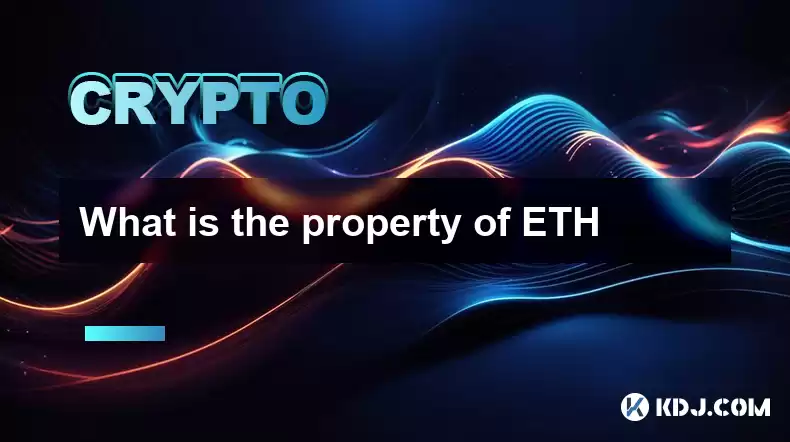-
 Bitcoin
Bitcoin $115000
0.12% -
 Ethereum
Ethereum $3701
4.50% -
 XRP
XRP $3.081
2.99% -
 Tether USDt
Tether USDt $0.0000
-0.01% -
 BNB
BNB $767.9
1.45% -
 Solana
Solana $169.5
3.13% -
 USDC
USDC $0.9999
0.01% -
 Dogecoin
Dogecoin $0.2106
4.30% -
 TRON
TRON $0.3334
1.62% -
 Cardano
Cardano $0.7564
2.54% -
 Stellar
Stellar $0.4165
0.76% -
 Hyperliquid
Hyperliquid $38.75
0.25% -
 Sui
Sui $3.593
3.00% -
 Chainlink
Chainlink $17.08
3.59% -
 Bitcoin Cash
Bitcoin Cash $573.6
4.35% -
 Hedera
Hedera $0.2508
-0.84% -
 Avalanche
Avalanche $23.07
6.46% -
 Ethena USDe
Ethena USDe $1.001
-0.02% -
 Litecoin
Litecoin $120.8
8.17% -
 UNUS SED LEO
UNUS SED LEO $8.943
-0.32% -
 Toncoin
Toncoin $3.400
-5.60% -
 Shiba Inu
Shiba Inu $0.00001255
1.54% -
 Uniswap
Uniswap $9.908
6.32% -
 Polkadot
Polkadot $3.718
2.10% -
 Monero
Monero $303.0
-0.74% -
 Dai
Dai $0.9999
-0.02% -
 Bitget Token
Bitget Token $4.392
0.91% -
 Cronos
Cronos $0.1403
6.31% -
 Pepe
Pepe $0.00001076
1.13% -
 Aave
Aave $267.2
1.80%
What is the property of ETH
Ethereum's decentralized architecture and scalability empower it to seamlessly handle numerous transactions, enabling a wide range of applications, particularly in the thriving realm of decentralized finance (DeFi).
Feb 11, 2025 at 03:54 am

Key Points:
- Decentralized Platform: Ethereum is a decentralized platform not controlled by any central authority. This architecture enhances security, transparency, and resistance to censorship.
- Smart Contracts: Ethereum allows for the creation of smart contracts, self-executing contracts with predefined conditions. These contracts facilitate automated transactions and reduce the need for intermediaries.
- ERC-20 Tokens: Ethereum supports the creation and deployment of ERC-20 tokens, which represent various assets or utilities within the Ethereum ecosystem.
- DeFi Applications: Ethereum provides the foundation for decentralized finance (DeFi) applications, enabling peer-to-peer lending, borrowing, trading, and other financial services without relying on traditional intermediaries.
- High Scalability: Ethereum's scalability allows for increased transaction throughput, handling numerous transactions simultaneously without significant delays.
Detailed Explanation:
1. Decentralized Platform
Unlike traditional platforms controlled by a single authority, Ethereum is a decentralized platform managed by a network of computers worldwide. This decentralized structure distributes decision-making power and prevents a single entity from controlling the platform or manipulating its operations. Decentralization enhances security, transparency, and resistance to censorship.
2. Smart Contracts
Smart contracts are self-executing agreements on the Ethereum blockchain. They contain predefined conditions and execute automatically once these conditions are met, eliminating the need for manual intervention or intermediaries. Smart contracts enable the automation of complex transactions, reduce transaction costs, and increase efficiency.
3. ERC-20 Tokens
ERC-20 tokens are a standard for tokens created and deployed on the Ethereum platform. These tokens represent various assets or utilities and comply with a specific set of rules, ensuring compatibility with Ethereum applications. ERC-20 tokens enable the creation of utility tokens for specific projects or services and facilitate interoperability between various applications.
4. DeFi Applications
Ethereum's blockchain provides the foundation for decentralized finance (DeFi) applications. DeFi applications leverage smart contracts and decentralized protocols to offer financial services such as lending, borrowing, trading, and asset management. These applications eliminate the need for centralized intermediaries, providing greater transparency, accessibility, and potential cost savings.
5. High Scalability
Ethereum is designed for scalability, allowing it to handle a high volume of transactions simultaneously without experiencing significant delays. The platform's scaling mechanisms enable faster transaction processing, improved efficiency, and reduced congestion, making it suitable for large-scale applications and widespread adoption.
FAQs:
Q: What is the difference between Ethereum and Bitcoin?
A: While both Ethereum and Bitcoin are cryptocurrencies, they have distinct characteristics. Ethereum is a decentralized platform that facilitates smart contracts and DeFi applications, while Bitcoin is primarily a store of value and a peer-to-peer payment network.
Q: Is Ethereum secure?
A: The Ethereum blockchain is secured through proof-of-work consensus, ensuring the integrity and immutability of transactions. The decentralized nature of the platform also contributes to its security, as there is no single point of failure.
Q: What is the value of Ethereum?
A: The value of Ethereum, represented by the price of its native token, ETH, is driven by various factors including adoption, market sentiment, and macroeconomic conditions. ETH has utility as a medium of exchange, a store of value, and a means of accessing DeFi applications.
Disclaimer:info@kdj.com
The information provided is not trading advice. kdj.com does not assume any responsibility for any investments made based on the information provided in this article. Cryptocurrencies are highly volatile and it is highly recommended that you invest with caution after thorough research!
If you believe that the content used on this website infringes your copyright, please contact us immediately (info@kdj.com) and we will delete it promptly.
- Velo Universe, DEX, and DeFi Security: Navigating the Future of Decentralized Trading
- 2025-08-05 09:25:13
- Bitget Wallet Revolutionizes Solana with Gas-Free Transactions: A New Era for DeFi
- 2025-08-05 09:25:13
- Ozak AI, Crypto Boom, and ROI Potential: Is This the Next Big Thing?
- 2025-08-05 09:25:24
- Solana's ETF Hopes & the All-Time High Chase: Is SOL Set to Soar?
- 2025-08-05 09:25:24
- Coinbase's Brian Armstrong and the Art of Focused Work: A Deep Dive
- 2025-08-05 09:25:30
- Uniswap Price Prediction: Bullish Reversal on the Horizon?
- 2025-08-05 09:25:30
Related knowledge

What is Ethereum’s Slashing mechanism and how to punish malicious behavior?
Feb 20,2025 at 03:08am
Key PointsOverview of slashingDifferent types of slashing in EthereumIncentives and consequences of slashingIdentifying and reporting slashed validato...

What is the verifier node of Ethereum and how to become a verifier?
Feb 19,2025 at 06:00pm
The Verifier Node of Ethereum: A Comprehensive GuideKey Points:What is a Verifier Node?How to Become a Verifier NodeResponsibilities and Rewards of a ...

What is Ethereum’s staking, and how to participate and earn money?
Feb 19,2025 at 04:37pm
Key Points:Understanding Ethereum's Staking MechanismSteps to Participate in StakingBenefits and Rewards of StakingSecurity and Risk ConsiderationsTec...

What is Ethereum’s DAO (Decentralized Autonomous Organization) and how does it work?
Feb 20,2025 at 03:12am
Key PointsDefinition and Structure of a DAOGovernance and Decision-Making in DAOsBenefits and Use Cases of DAOsChallenges and Limitations of DAOsWhat ...

What is Ethereum's multi-signature wallet and how to improve security?
Feb 20,2025 at 02:18pm
Key Points:Understanding the Concept of a Multi-Signature WalletBenefits and Drawbacks of Multisig WalletsRequirements for Setting Up a Multisig Walle...

What is Ethereum's oracle and how to provide data for smart contracts?
Feb 21,2025 at 01:30am
Key Points:Understanding the concept of oracles in EthereumExploring different types of oraclesDetailed guide on how to provide data for smart contrac...

What is Ethereum’s Slashing mechanism and how to punish malicious behavior?
Feb 20,2025 at 03:08am
Key PointsOverview of slashingDifferent types of slashing in EthereumIncentives and consequences of slashingIdentifying and reporting slashed validato...

What is the verifier node of Ethereum and how to become a verifier?
Feb 19,2025 at 06:00pm
The Verifier Node of Ethereum: A Comprehensive GuideKey Points:What is a Verifier Node?How to Become a Verifier NodeResponsibilities and Rewards of a ...

What is Ethereum’s staking, and how to participate and earn money?
Feb 19,2025 at 04:37pm
Key Points:Understanding Ethereum's Staking MechanismSteps to Participate in StakingBenefits and Rewards of StakingSecurity and Risk ConsiderationsTec...

What is Ethereum’s DAO (Decentralized Autonomous Organization) and how does it work?
Feb 20,2025 at 03:12am
Key PointsDefinition and Structure of a DAOGovernance and Decision-Making in DAOsBenefits and Use Cases of DAOsChallenges and Limitations of DAOsWhat ...

What is Ethereum's multi-signature wallet and how to improve security?
Feb 20,2025 at 02:18pm
Key Points:Understanding the Concept of a Multi-Signature WalletBenefits and Drawbacks of Multisig WalletsRequirements for Setting Up a Multisig Walle...

What is Ethereum's oracle and how to provide data for smart contracts?
Feb 21,2025 at 01:30am
Key Points:Understanding the concept of oracles in EthereumExploring different types of oraclesDetailed guide on how to provide data for smart contrac...
See all articles

























































































